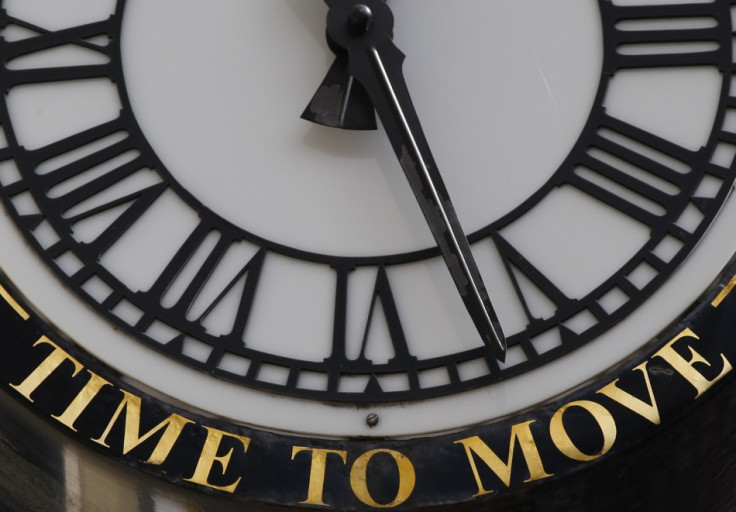Doomsday Clock: Is the World A More Dangerous Place Than Last Year?

Scientists are set to announce whether or not they will move the hand on the infamous 'Doomsday Clock' signifying how close humanity is to catastrophic destruction.
The clock, maintained by the Bulletin of the Atomic Scientists(BAS), represents how close mankind currently exist to global destruction. The closer the minute hand is to midnight represents how close we are to catastrophe.
The clock was last changed in January 2010, where the minute hand was pushed back from five to six minutes before midnight, meaning the 'apocalypse' was less likely in the current climate.
The Doomsday Clock was originally set up in 1947 by scientists at the University of Chicago to reflect how close humans were to nuclear destruction. Since then, it has become an indicator of the mankind's vulnerability to disasters from nuclear weapons, climate change and emerging technologies in the life sciences.
Now the panel, a team from the BAS, must decide on January 10 if they think the hand should be moved a minute closer to midnight - or certain doom - moved a minute away or keep it where it is now.
So what were the most significant factors which have occurred in the last year? What must the panel take into consideration before they make the decision about where the hands on the Doomsday clock belong?
The biggest factor will be the narrowly averted nuclear disaster at the Fukushima plant in Japan, which in itself was caused by a devastating earthquake and tsunami on March 11, 2010.
Although now declared safe, the series of meltdowns, failure of equipment and release of radioactive equipment was the biggest nuclear disaster since Chernobyl in 1986 and will take decades to decontaminate the surrounding areas.
The panel, who took part in the 3rd Annual Doomsday Clock Symposium in Washington on January 9, also considered the rising threat that countries such as Iran may be stepping closer to developing their own nuclear weapons, with their president Mahmoud Ahmadinejad
There is also the concern coming from North Korea, where the death of their former leader Kim Jong Il saw his young and untested son Kim Jong Un take control of a country which is widely believed to have nuclear capabilities.
Conversely, the Climate Change Conference held in Durban in December saw all countries commit to a global deal on cutting emissions by 2015 and looks to be enforced by 2020, which was described by U.S. officials as "historic breakthrough to save the planet."
The decision to move the hand of the Doomsday Clock will be made the Board of |Directors at the BASS along with its Board of Sponsors. The announcement will be made at 18:00 GMT on January 10.
© Copyright IBTimes 2025. All rights reserved.






















